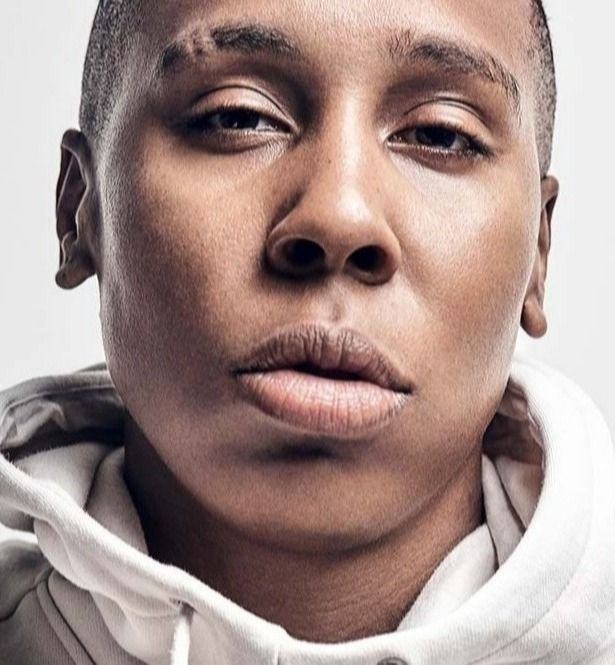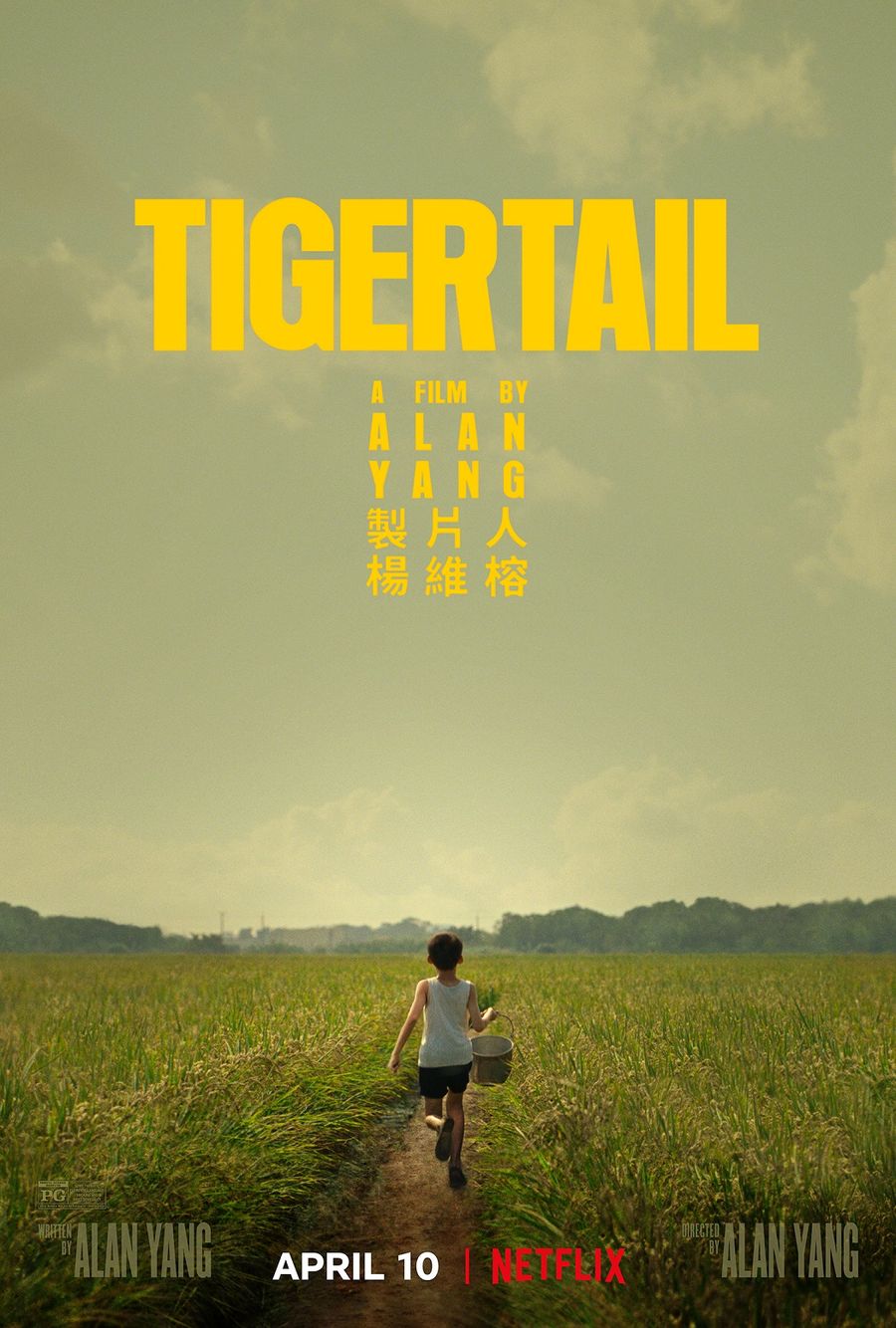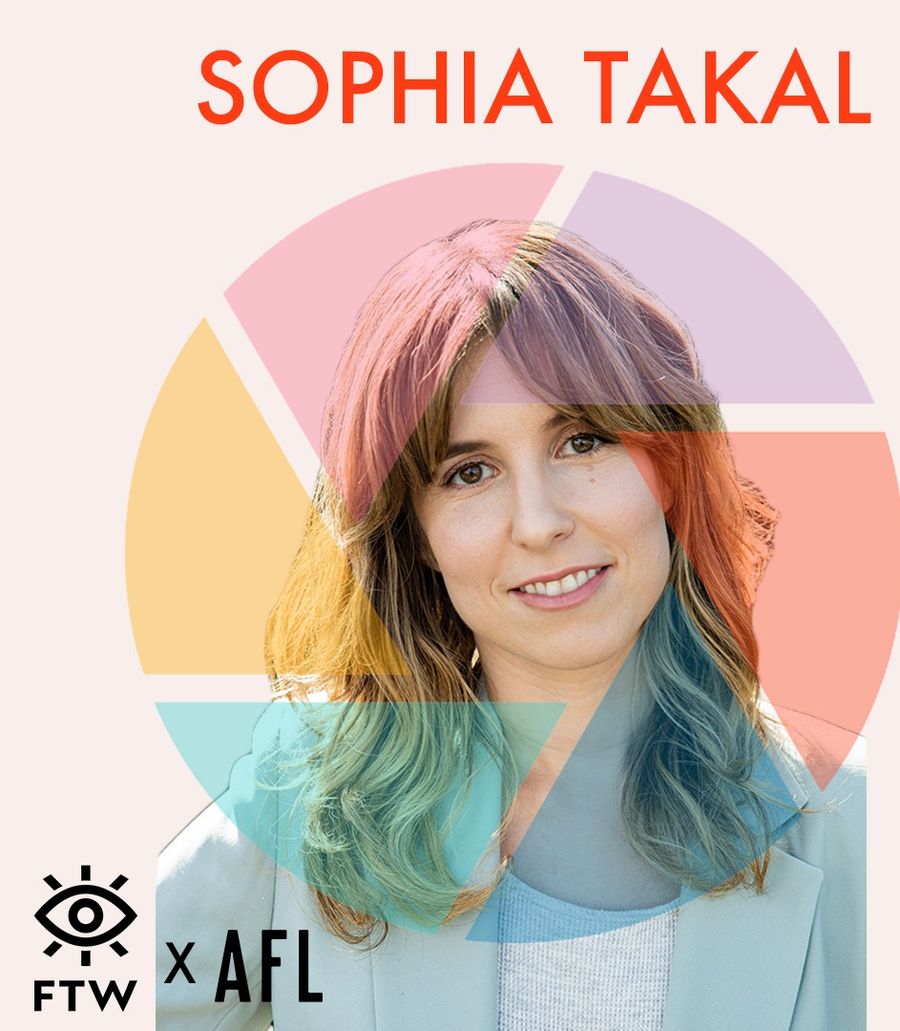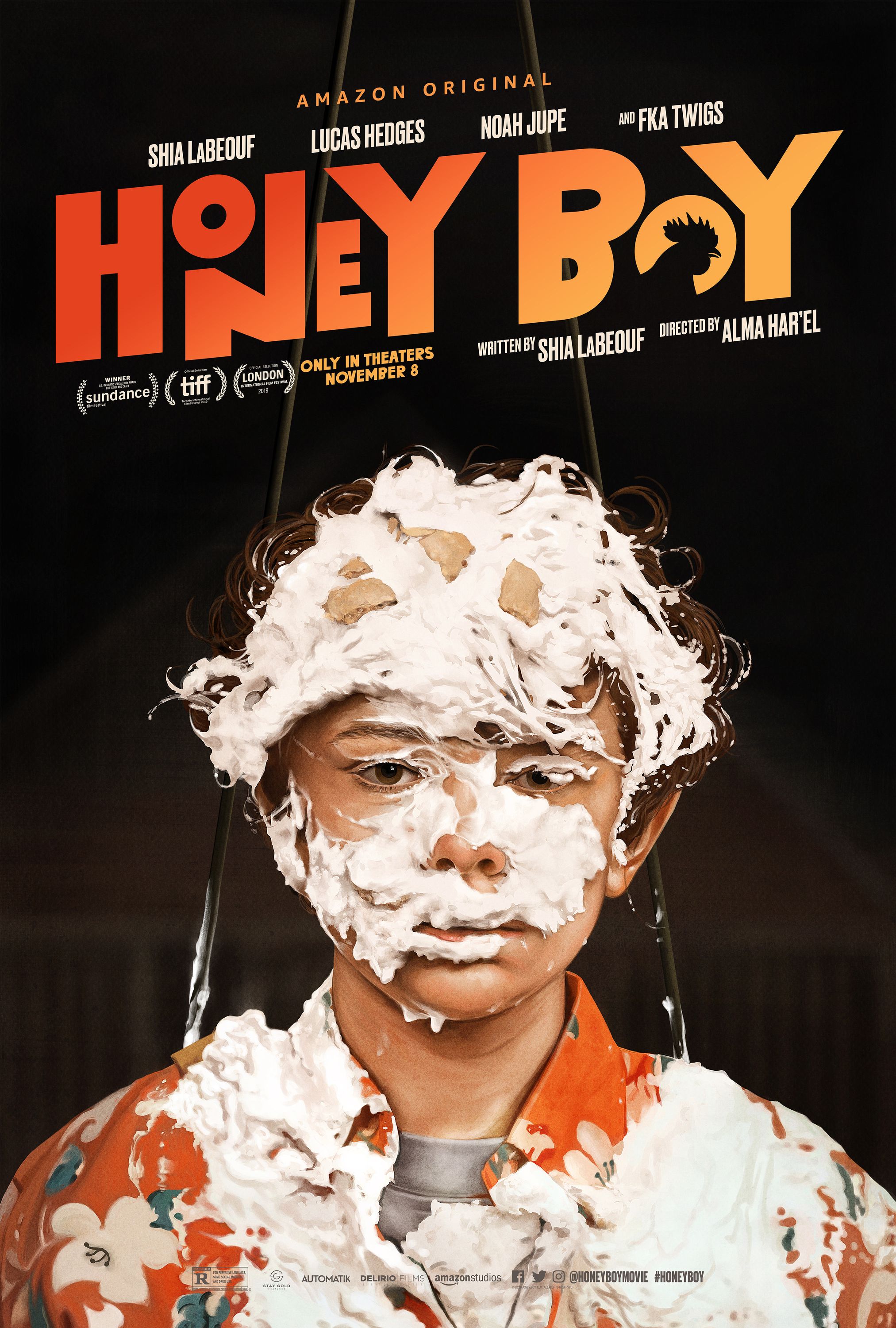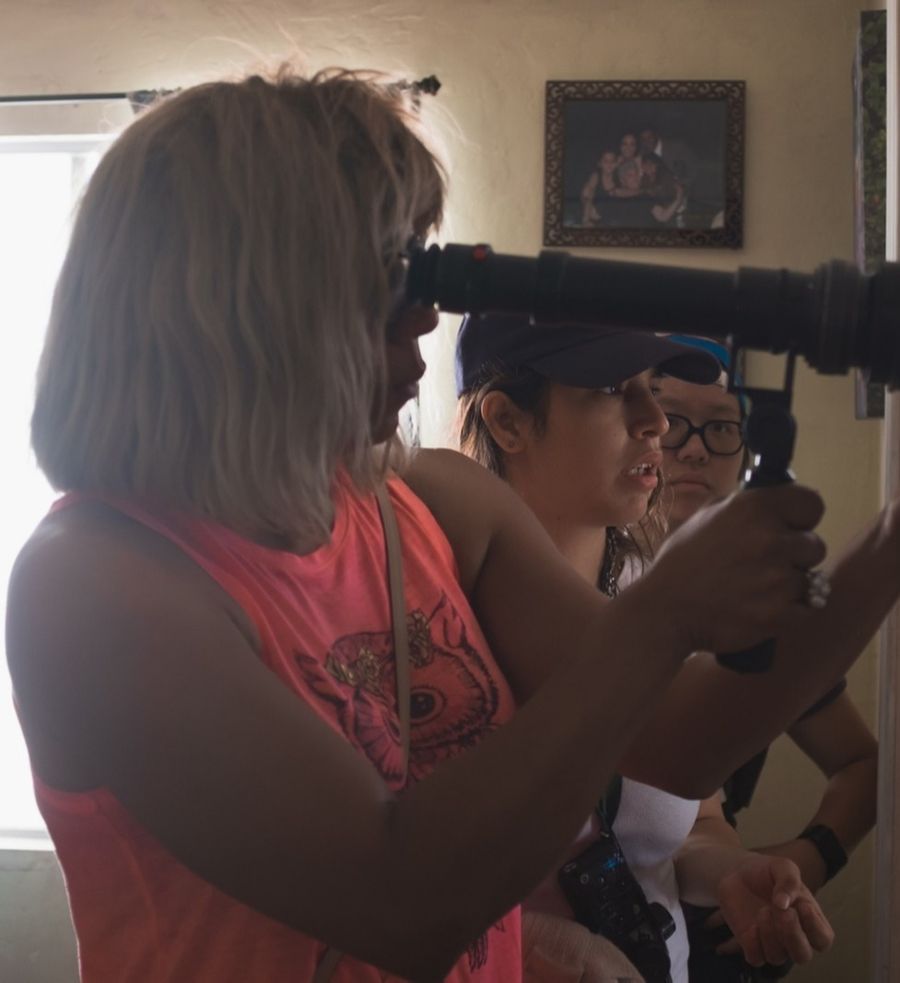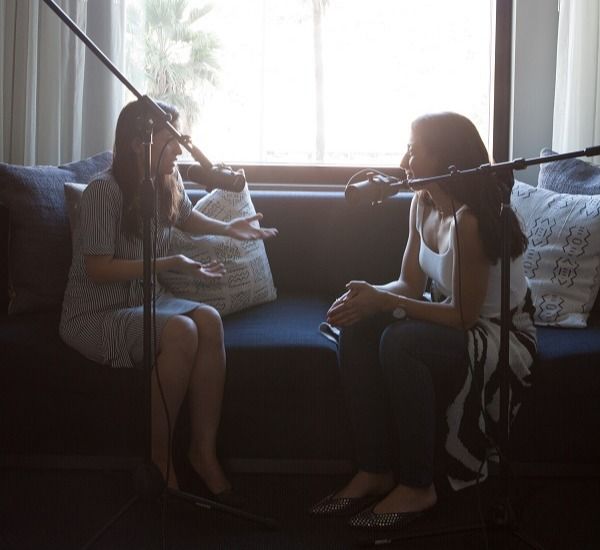Tigertail / Photos Courtesy of Netflix
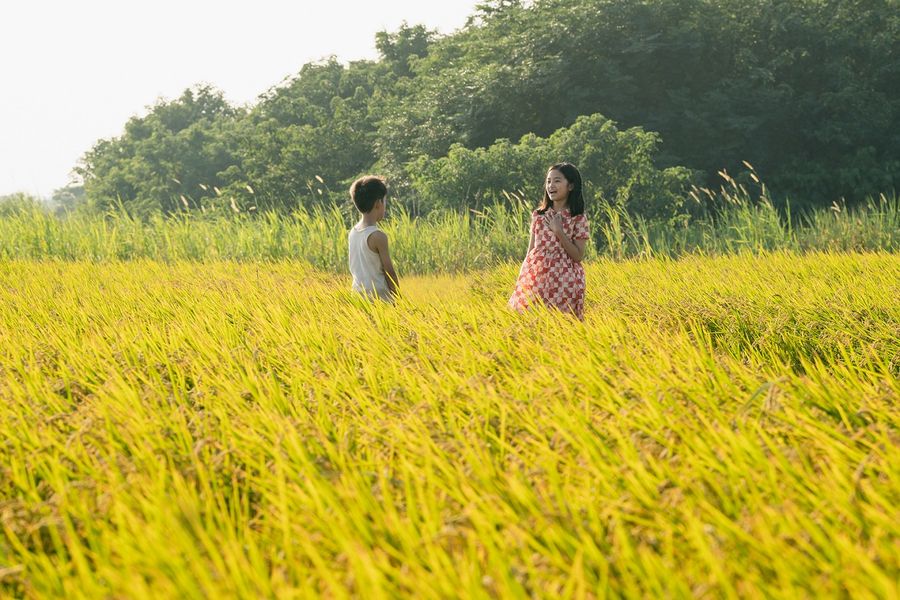
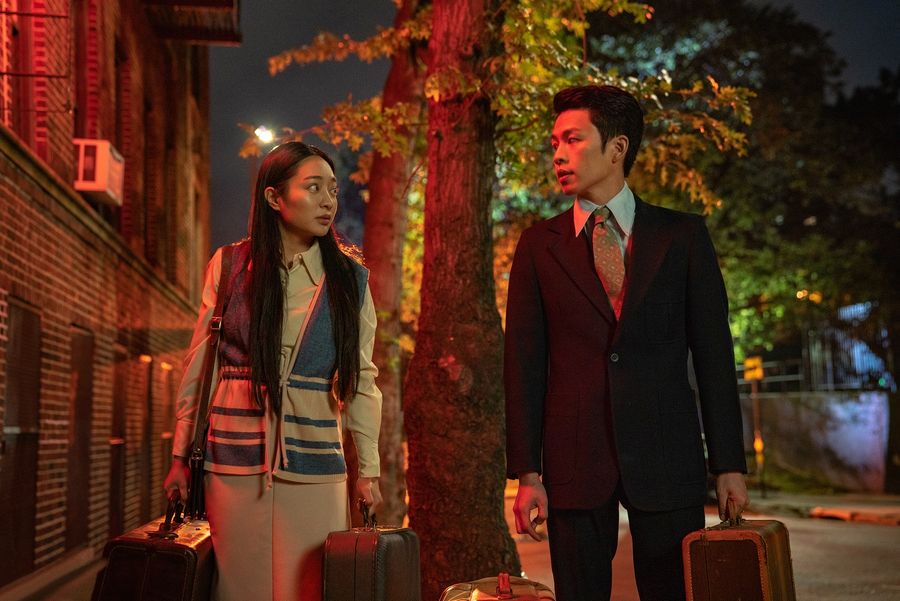
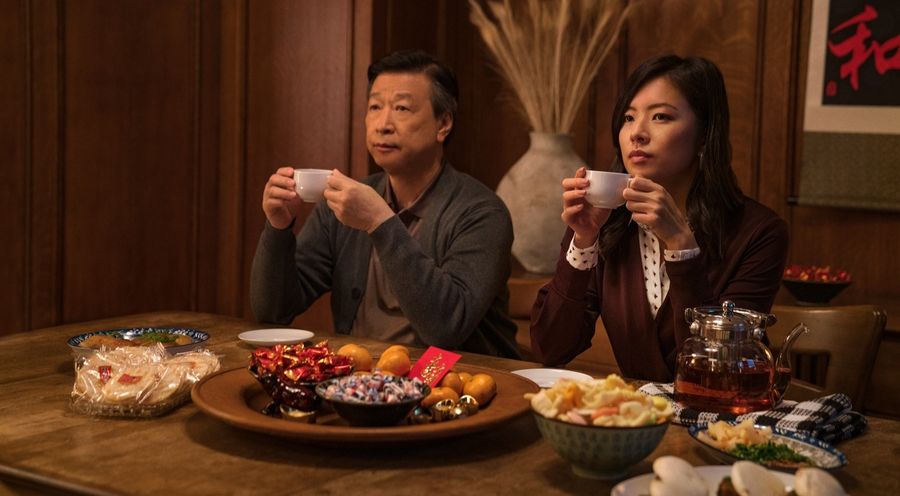
In his Director's Statement on Tigertail, writer-director Alan Yang says:
"I recently found the first draft of the script that would eventually become Tigertail on my computer. It’s dated August 14, 2016, and its filename is, simply, in all capital letters: FAMILY MOVIE. And that’s what the film is about. Family; more specifically, my family — the ways we talk and don’t talk, the ways we show and don’t show love, the ways in which my parents were raised in a completely alien culture and then raised my sister and me in a culture completely alien to them."
Through that statement alone, it is easy to see how this deeply personal film can impact the lives of viewers everywhere.
Tigertail is a multi-generational drama about a Taiwanese factory worker who leaves his homeland to seek opportunity in America, where he struggles to find connection while balancing family and newfound responsibilities. In this episode of the FREE THE WORK podcast, Lena Waithe interviews Alan Yang to talk the making of Tigertail and the impact that it could have, specifically on the Asian American community, through its message about finding yourself by finding where you came from. Alan said it best: The film captures the humanity of immigrants, the Asian American community, and the people that raised us. After listening, call up your family and stream Tigertail together on Netflix!
You can listen to this episode by clicking the play button above, or you can tune in through Apple Podcasts, Spotify, Stitcher, and Soundcloud. Enjoy! Keep scrolling for the full transcript.
CHLOE COOVER, FTW COMMUNITY LEAD: What's up world. Welcome to the FREE THE WORK Podcast. FREE THE WORK is a talent discovery platform that uplifts underrepresented creators and connects them to those who hire in film, TV, and advertising. And now, like all respectable organizations in this age of human history, we have a podcast. Come kick back as we chat with some of today's most influential creatives. Consider this the film school that you never have to pay student loans for and the creative guidance that your horoscope could never give you. Today's episode is a special conversation between creative masterminds, Lena Waithe and Alan Yang who worked together on the hit series, "Master of None." Writer, producer, director, Alan Yang has worked on some of the most iconic comedies of this century, such as "Parks and Rec" and "The Good Place." More recently, he has served as the backbone of shows like "Forever" and "Little America" and now is making his feature film debut with "Tigertail," which you can stream on Netflix today. "Tigertail" is a multigenerational drama about a Taiwanese worker and his journey through America inspired by Alan's father's immigration story. Here, Lena interviews her friend Alan on his beautiful new film. We hope you enjoy and thanks for listening.
LENA WAITHE: What's up. My name is Lena Waithe, and I'm talking to my friend, my colleague, Alan Yang, about his new, amazing movie, "Tigertail." This is the FREE THE WORD podcast. First, I'm going to start by saying, congratulations. This is amazing. I'm so proud of you.
ALAN YANG: Oh, thank you so much, man. I'm so happy you're doing this and thank you for taking time out of your schedule. I know we're all crushed with so much stuff, but man, I'm so glad you watched the movie and we can talk about it.
LW: My instinct was to call you after. I watched it a little late last night, but then I was like, "No, I don't want to ruin this moment." So I was like, "Okay, I'll wait." But the instinct is to text, do a voice, note something. But I think it also has a different impact on me because obviously we worked together, we've known each other for a very long time. And also as we've been around each other, I know you've been referencing this movie and working on it and writing it and obviously filming it. So, it felt like a proud sister watching something that her brother did. And you're like, "Oh wow. He did such a beautiful job." And I think to me, I'm super aware of what your, not your story or your narrative is, but there's always a story that we're always telling and to me, I kind of thought, "Oh, okay, this is Alan's story that he wants to tell where I feel like you never want us to walk by an elderly Asian person again and just like ignore them or think that they came out of the womb, like so wise are quiet."
AY: Yeah, yeah.
LW: It's like, Alan doesn't want us to walk by elderly people the same anymore. He wants us to know that there was a life behind there.
AY: That's exactly it, man. That's exactly it because they're human beings. It's like, can you imagine what they were like when they were 20 and what they've seen? Especially if they immigrated from another country and came here.
LW: Right.
AY: I mean some Asian people obviously were born here and grew up here, but for that generation, like what they've seen and what they've gone through and the loves they've had and the loves they've lost.
LW: Right.
AY: And it's just, they contain multitudes. Like my dad contains multitudes. It's really crazy. But you look at him now, it's like, "Yeah, he's a quiet older Asian guy." Like, yeah, he's always been like that.
LW: Yeah. It's so amazing. So well done. There's a couple things I want to get to and we'll try to touch on as much as we can. So first, I mean, I hate the question people ask of like, what inspired you to write the story? So I don't want to ask you that. I think my question for you is, what is it about? Because I always believe that there are certain stories that we have to tell, that we just have to tell before we go to our grave. So, why was this one of those stories that you have to tell before you go to your grave? That's how I want to present the question.
AY: I love that. I love that. And obviously I've talked a little bit about how this was inspired by my family and essentially for a good part of the script, that was my dad. Obviously I fictionalized a lot of stuff and we ended up actually shooting it, but that was my dad. And on top of this, I think you and I have talked about that sometimes you also think, "Why am I the person to tell this story?" And for me, you look at how many Asian American directors there are in Hollywood. First of all, there aren't many, right? There's like five of us.
LW: Right, true. A handful.
AY: Yeah. If someone's going to tell this story, it's going to be one of us first of all. Second of all, I felt like this was my version of my dad's story, like his memories, his dreams filtered through my dream. So it's not his version because his version would probably be more accurate and less dreamlike and he probably wouldn't have shot those memory sequences as sort of beautiful cinematic, floaty beautiful memories because they're not all beautiful for him. But for me, what I wanted to express what you were saying earlier, this is my imagination of his story. And it really… It probably was even rendered even different by the fact that I didn't hear these stories until I was an adult. That's part of the movie too and it's part of the story of the relationship between his generation and our generation, because there is so often a disconnect between the older generation of Asian immigrants and their children, because they just don't talk.
LW: Yes, definitely.
AY: And I don't want to overgeneralize because every family is different.
LW: No, no, no. Yeah.
AY: But I think it's pretty common. I know this from talking to other Asian people where it's like, yeah, you don't know how many interviews I've done or aged people are like, "I don't know anything about my dad." Like I talked to someone from the New York Times yesterday and I was like, "Yeah. So your parents came to Pennsylvania. Where did the settle?" He's like, "I don't know." I was like, "What? You don't know where your parents lived?" And he's like, "Yeah." He's like, "I'm going to call my mom because I don't know anything about their lives." And I think this is a thing we hear again and again and again, I thought there was something beautiful about not just showing his life as a young man and all of his loves and passions and struggles, but also, not to spoil the movie, but there's a redemption factor with him and the next generation, his daughter, and ironically, the person he has the biggest disconnect with is the person he finds redemption with.
LW: Yeah, and also the person I think he has the most in common with, honestly.
AY: Yeah, absolutely. Absolutely.
LW: Yeah. Yeah, because they have the same crack in their heart.
AY: Yes. They're broken. They're both broken and there's no coincidence.
LW: Yeah.
AY: Because he passed that onto her by treating her a certain way.
LW: Right.
AY: And of course, they're similar people, so that's 100%.
LW: Yeah.
AY: I'm glad you picked up on that because there was a version of this movie where it was 250 pages long and every character had a huge chapter and what I boiled it down to was him and her, because they're the most similar.
LW: Yeah.
AY: And that became the spine of the movie, even though a lot of it is told in flashbacks. The present day story was very powerful to me because of all the characters, I identify a lot with Angela because that was a little bit based on my own relationship where I didn't talk to my dad for most of my life, the majority of my life and then finally, we started connecting a little bit more and we did take a trip to Taiwan and all of that was kind of parceled into the movie.
LW: Wow. Can I ask… This question, which is obviously a very deeper question, but there's so many layers here that you're touching on. Why is it… Well, here's the deal. There was a powerful moment for me that stood out in the film where he's saying goodbye to his mom as he's about to leave. He's about to go to America and they don't hug goodbye.
AY: Yeah.
LW: And I guess somebody could argue, "Oh, okay, that's expected because maybe in that community, they're not that affectionate," but for some reason that moment stood out because it just speaks so much to the family dynamic, how you relate to other people in the world and the desire. There was almost like… Everything the character is doing is to help his mom.
AY: Yeah.
LW: We get that.
AY: Yeah.
LW: He's very honorable by leaving and by sacrificing his own happiness so that way she can have a better life or their family can have a better life. But he wants to hug her and he doesn't. And I think you see that go throughout the film of wanting to reach out, wanting to connect, but it's almost like a tradition. So that was the thing it's so cultural to not touch and to not hug. And then my other question was going to be, why do you think your parents don't talk to you? And it's almost like, are they not supposed to?
AY: Yeah. Yeah. I feel like we know each other and we've worked together because the things you are picking up on are exactly the subtle things that you drop in the movie that you hope people see and that scene to me is one of the linchpins in the entire movie. It's exactly what you're saying is, how do we communicate our love to people? And I think in this case, the Pin-Jui character, his entire life, he's taught to quote unquote "love" through action and through your behavior and your large decisions about your life.
LW: Right, right.
AY: And like you're saying, he sacrifices everything for his mother. He uproots his life, he sacrifices his love, he moves to a new country. But you're right, he doesn't know how to hug. He doesn't know how to say, I love you. He doesn't know how to do any of that and so when they leave, it's the most Asian moment in the film. They say goodbye. It's two people who could not love each other more. They're the only people they have in their lives. They've lived together the whole life. And my translator, someone working on the film, a Taiwanese woman in Asia read that scene and then we rehearsed that scene and she was crying. And afterwards she told me, "That's how I talked to my mom because it's… I love her so much, she loves me, but we never ever say anything." And I told her the first time I hugged my parents was when I was in my twenties.
LW: Wow.
AY: I taught them how to hug and Lena, it really is cultural and so that's why at the beginning of the movie, the grandma tells the little boy, "Don't cry. We're strong. We don't show our emotion. We're going through a lot of shit. We struggle. We don't have enough food to eat. The military is after us. And the way we prove our strength is by not letting them see that we are suffering." And so that to me is the humility of the Asian culture. It is showing that we're not bragging about our love. We don't display it.
LW: Right.
AY: But it's stoicism and we demonstrate it through our sacrifice and, like you said, our honor and our sort of action and behavior and what the movie kind of makes an argument for is, that's all well and good and yes, that is a certain kind of strength. I don't want to talk down to that type of strength because it is.
LW: No, yeah.
AY: But can we augment that and is there also a strength in vulnerability and being emotional and being open and honest? And I think there is, and I think we can do a combination of Eastern and Western strength and I think that speaks to what it's like to be Asian American. And can we find a way forward? And, obviously the character at the end finds some redemption by being honest and showing his emotion finally, with someone that he loves. And I think it's all of those elements put together and I hope it doesn't come down too hard on either side.
LW: No, no.
AY: But that is a linchpin of the movie for sure and a beautiful scene, beautifully acted by those two actors as well.
LW: Stunning. The cast is phenomenal. I also think it's shot beautifully. Who was your DP?
AY: Nigel Bluck. He worked on "True Detective" and he and I hit it off immediately. He's a six foot seven New Zealand man and so him on set with the Taiwanese crew was amazing. He's always very good natured. And we talked very early on about the look of the film and as the film nerds will notice, we shot a lot around 16 millimeter.
LW: Yep.
AY: So everything in the past. Yeah. Everything in Taiwan, in the Bronx, everything that's a flashback…
LW: That's what I was going to say, you filmed some of it… Okay.
AY: Yes, and so there's a distinction and it makes those flashback scenes vivid, saturated, grainy, like a memory and like a dream all at once. And it really enhances the reds, greens, the beautiful cyan.
LW: The rice.
AY: The rice fields, exactly, and make those scenes feel like a memory and make those scenes feel more alive and present than reality does.
LW: Yeah.
AY: Because he's living in the past. That's more present to him than the present.
LW: Yeah.
AY: And so, yeah, those scenes are really beautifully shot and also a lot of handheld. So, in the past, we're kind of alive with it. We're with the characters, it's subjective, it's kind of handheld. And then in the present, it's all on sticks, dolly, it's very presentational, composed, [inaudible 00:12:47] sort of desaturated grays and browns, autumn in New York type of look. So it kind of bounces back and forth between those two and on top of that locations, right? You go to Taiwan.
LW: I was going to say locations are stunning.
AY: You find there's no substitute for locations. You know that from shooting.
LW: Yeah.
AY: It's like you pick a good location, you can't shoot a bad angle. It's like you're in the rice field in Taiwan and we shot at the same sugar factory that my dad and grandma worked in.
LW: Wow.
AY: So that was their sugar factory. You couldn't have… When I was there, I was so emotional. I was taking photos and sending them to my dad back in California and he couldn't believe it.
LW: Wow.
AY: Yeah, so we were trying to find a factory that looked like the 1970s and I couldn't find it.
LW: Right.
AY: You know, we were scouting all these factories, they looked modern and I said, "Can we go to the actual small town factory that my grandma worked in for her whole life?" She made burlap sacks that sugar came in and so I went to that factory and it was perfect.
LW: Wow.
AY: Just like it hadn't been sort of upgraded in 40 years, so…
LW: Is it still operating? Is it still…
AY: It's still operating. It's still operating and I sat down with the owner of the factory. He was a really quiet Asian dude. He looked like he was from the 1970s. I wanted to cast him. I was like, "Can we read this guy?"
LW: Wow.
AY: And he beckoned me into his office and I thought he wasn't going to let us shoot there. And he said, "I just want to make sure you make the factory look good. You can come back when we're in operation and shoot B roll." He like knew everything. He literally essentially wanted us to make sure that…
LW: That's giving me goosebumps. That's amazing.
AY: Yeah. The people there have so much pride. They want their sort of region of the country to be portrayed in a beautiful fashion and I hope I did them justice because…
LW: You did, it was beautiful.
AY: It makes Taiwan look good. I hope it increases Taiwanese tourism.
LW: Yeah. You probably will. You probably will. And well, whatever you do, you definitely encouraged people to go back to their roots to more define themselves. Speaking to the 1970s, I feel like you're very influenced by 1970s filmmaking. I peep that when I'm working on "Master of None," I feel like that that show has almost like a 1970s feel to it, which is one of my favorite eras for film, for TV and I can see that influence and that's the time it's supposed to be, but to me it was almost so apropos because it feels like a time that you really appreciate, you really respect and I can feel that because oftentimes when you watch period things, I feel like I've been watching a lot of period stuff. And it sort of doesn't… It's hard to capture a time. It's hard to capture that emotion and I think you do a really beautiful job with that and I think you also do the locations that go from the rice fields to the small shitty apartment in New York City.
AY: Yeah.
LW: I think this was so well done.
AY: Yeah.
LW: All that kind of stuff was really great.
AY: Absolutely. I think with period, you never want it to feel like people playing dress up.
LW: No.
AY: You don't want it to feel like a bad Halloween costume party.
LW: Right. Right.
AY: I think that that's always a danger. That's always a danger. And so we tried to be as authentic as possible. You know, Amy Williams was our production designer. You know Amy because we worked on "Master of None" together.
LW: A lot of attention to detail.
AY: The incredible amount of research… Yes, and really just digging into it and giving your all and some of the Bronx scenes, kind of really eye opening for me because as we got those dailies in, we've seen 1970s New York before, right? We've seen that not only in period pieces, but in actual movies.
LW: Right. Yeah.
AY: But what I haven't seen is a young Asian American couple in their twenties navigating the Bronx in the 1970s, just literally walking the streets, going to laundromats, like working.
LW: Working.
AY: Yeah.
LW: Shit. Like that fucking montage, up, down, monotony just cleaning like, it moved me. It affected me in a real way because…
AY: I've just never seen it… Yeah.
LW: Yeah. You don't think about it. The thing is these people that work in these places… Because we go to these stores all the time, like people just go. And I think the thing that you, again, it goes back to your story, your origin story, your thing is like, do not ignore.
AY: Yeah. [crosstalk 00:16:50] And it goes back to what we talked about, which is I had just never seen that experience center. Right? It's like, "Wow, these people are the main characters in the 1970s. Asian people in the 1970s in America. I just haven't seen that movie, so I made that a 20 minute movie in my movie, which is like that could be its own movie. That could be its own movie.
LW: Yeah.
AY: And I think I very specifically chose to suddenly at that point, follow the Zhenzhen character, the mom character because she has a story of her own and seeing her meet friends and her sort of show her isolation and her loneliness.
LW: Yeah.
AY: I think that was very sort of intentional as well because it's the story of many, many Asian American immigrants coming in the 1970s and I just haven't seen that portrayed with these techniques and I heard at this level.
LW: No, I agree. [crosstalk 00:17:38] display, for it to be so modern yet also sort of talking about the past.
AY: Yeah.
LW: I thought it was really beautiful.
AY: That's one thing we talked about when we were making Master even was, can we watch all these classic movies? You know, the movies that we were talking about that we love, be inspired by them, and use those techniques with the most modern stories possible. Whether it's the story of a major American immigrant, Asian American family and stories that we haven't seen period, but definitely haven't seen using these classic film techniques.
LW: Absolutely.
AY: So, that was important.
LW: And also as a story point, I always watch things I think through a writer lens first and so when I'm looking at a movie, I can't help it. I'm being very mindful of the script and the decisions you're making, the choices you're making and also too, I'm trying to get ahead. I'm trying to go, "Okay, I think this is what's going to happen to them." And I think you did the thing that was very difficult to do. You definitely surprised me because this movie could have gone a bunch of different ways. We could have had a whole middle act where he rekindles this love with this woman that he was once in love with when he was younger and the way you do it so beautifully… It's funny, here's the crazy thing, and I've actually been to that restaurant, which is like nuts.
AY: Yeah, yeah.
LW: And I was like, "This is in the cut," because I had a friend who told me about it and I was like, "Okay," [crosstalk 00:19:00].
AY: It's in Chinatown. Yeah.
LW: But that scene of them sitting together, you almost sort of got the audience's hopes up in a way. And then you surprise us about how you continue with the story, because in a way you're saying, "No, I'm not going to give you that this sweet movie you think that I should give you." You're like, "I'm going to be very honest about this moment because the truth is, sometimes you make decisions in your life. You have to live with that decision."
AY: Yes, there's no going back. There's no going back. And a couple of points there, number one, I didn't necessarily want it to be a fairytale. This isn't a fairytale of the American dream.
LW: Right.
AY: Or everything turning out okay in the end.
LW: Right.
AY: It's not that, right? I prefer bittersweet endings. I prefer sort of the ambiguity and the ambivalence of decisions, like you said, you make. And I think…
LW: I got in trouble for it by the way because some people weren't happy about that.
AY: I know, I know.
LW: Prepare yourself, because yours is not that depressing.
AY: No, yeah, it's not that depressing.
LW: Yeah.
AY: The other point is like, you and I speaking as writers, we're always looking at kind of the structure of the thing.
LW: Right.
AY: And one of the things that really hit home for me was, I heard this sort of aphorism once about writing the script, which is like, in a lot of scripts, it's more meaningful and sort of more truthful if the character wants something really badly and what they think they want isn't what they need. And so in this case, the Pin-Jui character, you realize the whole movie, what he really wants is to reconnect with the past and take that decision back and really go back in time and make a different decision. And he seems to get that opportunity and reconnects with Yuan.
LW: Right.
AY: And oh my God, there's that kind of misdirect where it's like, "Oh, is this going to happen? Is something going to happen here?"
LW: Mm-hmm (affirmative).
AY: And you realize that's not what he needs. What he needs is to grow as a person and be able to sort of learn to connect with other people on a deeper level and be honest and be open and so, it's in that process, that meeting with Yuan again, pushes him even lower.
LW: Right.
AY: And I think allows him to finally kind of hit rock bottom and feel the need to connect with somebody and that person happens to be his daughter, not to spoil the entire movie, but yeah.
LW: Right, right.
AY: I think so. I think it's that difference structurally of what the character wants and what they actually need and what they get.
LW: No, yeah. No, you're right.
AY: So, it's kind of both of those things.
LW: No, yeah. And that's what, as writers, we kind of have to keep going back to it. I also like sort of like a little trick because you don't really get to see this person that his daughter was once with. I mean, you get a quick glimpse, but it's not a whole storyline.
AY: Yes.
LW: Which I love.
AY: Yeah.
LW: I love that. I really appreciated that.
AY: Yeah.
LW: I guess, what was your intention behind that? Or were you just sort of like, "I don't want to clog this with a bunch of characters or were you like that's not important?
AY: Yes. The movie ended up being about his journey and sort of any sidetrack from that started taking away from his journey and your understanding of his psychology.
LW: Right, okay.
AY: And to me, I got a sense of Angela's character and I'm so happy that you were like, "Oh yeah, they're the same." That's the information we needed and that's how we needed to connect with both of them quite frankly. You get it and I love, by the way, I love that sort of Christine's performance as well as those flashbacks when she thinks back, it's enough. And the two shots of them eating alone is enough. And when you start gilding the lily, it starts detracting from the movie and I really like this symmetry of his story being told basically through the prism of his relationships with the foremost important women in his life. That's his mother, the woman he loved, the woman he married and his daughter. And so that sort of is the arc of his life and it just worked. I feel like you could have done a lot more sort of spoonfeeding that they're alike, they're alike, they're alike, but you get it.
LW: Yeah.
AY: They have five key scenes throughout the movie and that's your thread. That's your thread and I felt ultimately the movie was strongest showing his relationships with the four of them equally essentially.
LW: Absolutely. Can you talk a little bit about what I like to call, simple storytelling? I think it's something I really learned from you, from Aziz. It's the thing about, I don't know, I think my level of storytelling definitely became more sophisticated after working with you guys, but also just really like whittling it down to the bare necessities. And I think in watching… But it almost leaves more room for emotion.
AY: Yeah.
LW: I think when you watch movies or stuff like that, it's always clogged up with a bunch of stuff. And really, it's probably the result of like things being developed too much.
AY: Yeah, notes and yeah.
LW: Yeah. And it's just like… Or even I think sometimes our audiences are trained that way, because even like when… I was very lucky, I've been really liking the [inaudible 00:23:56] but sometimes there are people that were like, "I feel like I wanted to know more about them or I feel like I didn't know their this or I didn't know where they were or I didn't know what their favorite food was." And I'm like, "Oh, because you guys are watching shit movies or bad television."
AY: Yeah. Yes.
LW: If people explain everything and I think… And maybe that's why watching your film, because we also know each other and I've learned and we worked together, it was like, "Yes. This feels like healthy food that tastes good."
AY: Yes.
LW: You know what I'm saying?
AY: I have so many thoughts on what you're saying and I agree 100%. I think people have been trained and in sometimes not the healthiest way to continue the analogy, because there's a difference between plot and story, right?
LW: Yes.
AY: It's like to me, plot mechanics are like the twists and turns and sort of like what happens scene to scene. To me, it's way more important to convey emotion, to convey the sense of the characters, the big picture to me is always the most important thing. I forget who it was, it was like Coppola or Scorsese or someone who said, "You should be able to write down a word on a card and that's the movie," right? Everything should emanate from that idea. It is that simple. If you can boil it down, boil your movie down to that thing and so the thing we talked about with our movie was… And this was script form shooting, editing especially. Daniel Hayworth who edited the Thanksgiving episode for us edited this movie as well and it was all our friends who were working on the movie.
LW: Yeah.
AY: But he and I kept talking to you about elemental, elemental, elemental. What are the frills that we don't need? What do we need to get at the essence of this and make it feel like this movie has always existed? I know that sounds very sort of, in some ways, pretentious.
LW: Oh no, no, no.
AY: But it's like, no, you can go scene by scene and these scenes are simple. These scenes get to the core of what these characters are feeling emotionally. It's not about… For me, different movies are different movies and look, if you're making a heist movie, yeah, put a lot of plot in it. Put a lot of twists and turns, put a lot of like…
LW: Right.
AY: But for this movie, it's about emotion. It's about raw emotion. It's about concealing emotion and it's about the interplay of characters. So I think there's definitely a difference between, to me the emotional story is always the key and the plot story should always serve that and convey the emotion as opposed to vice versa. To me, you shouldn't be working backwards from, like you said. And one more thing because you mentioned information. I read a thing, I think from Chris McQuarrie, he does all the "Mission Impossible" movies, he did "The Usual Suspects," he wrote a thing that I always remember which is, "Information is the death of emotion." So it's like, as soon as you have a scene where people are just explaining things or exposition, it's just you're checking out and it's like, you've got to get information across obviously because it's just on the table.
LW: Yeah, you do.
AY: But how can you get it across in a way that is not just people… To me, that stuff drives me crazy. Like learning rules about stuff and learning information without any emotion coming across, that's not for me.
LW: This question was something I couldn't stop thinking about while watching the movie. Oftentimes other bad questions interviewers ask, "What do you want people to take away from the film?"
AY: Yeah.
LW: And I hate that question.
AY: Because I'm not… Watch the movie. You know?
LW: I hate that question. I always respond and say, "I don't want to tell audiences how to receive my art, so I can't tell you what they should take away."
AY: Yeah.
LW: But what I wanted to ask you was, what did you take away from the film?
AY: Yes. I love that. And for me, it's very simple. And for this movie, I think the answer is so much easier than projects that aren't as personal. And for me is that, I'm closer to my family. I learned so much about my dad. I learned so much about my mom. I learned so much about my sister and we've changed. All of us have changed and this is very personal.
LW: Wow.
AY: So my dad, if you watch the movie you'll see, it's some similarities in the sense that he is not the most effusive human being.
LW: Yes.
AY: He's not a hugger. He's not that… So he watched the movie. I finally… We had a screening plan, obviously we couldn't do it so I sent them links and they all watched it in their homes. I texted him. He told me he was going to watch the movie that night. I didn't hear anything. I was like, "Oh, did he hate it? Was he pissed?"
LW: No.
AY: Yeah. Right? So, I had a sleepless night. I literally like…
LW: Oh, Jesus.
AY: And then the next day, finally, I waited almost the whole day, nothing. So I texted him. I was like, "Hey, did you get a chance to watch it? Is everything okay?" And he texted back, "I loved it so much. I watched it three times. I want to watch it 10 more times before it comes out. I can't believe how beautiful it is, how much you remembered about our lives, all of the details." He went like shot by shot, described… It was one of the longest texts I've ever received from him. And to me that was, not just meaningful, it was so emblematic of the movie in general, which is like, he also didn't… I was like, "First of all, you could have texted me this right after you watched it."
LW: I know.
AY: "You don't have to make me sweat bullets for 24 hours or whatever."
LW: I know.
AY: But to me, that was symbolic of the movie too.
LW: Right.
AY: It's like, he needed me to reach out and ask him. So that's the movie. It's him saying goodbye to his mom. It's like, no one's reaching out. So to me, it's like, I'm taking responsibility.
LW: Right.
AY: I want to be the person reaching out. I want to ask how they're doing. I want to ask… It's up to me. It's up to me and that's fine. I'm a grown ass person now. It's up to me and that's why, one of the things I've been saying is, I fully expect and I hope people watch the movie and call their parents or call their kids because don't wait for the other person to be the one to reach out.
LW: Right.
AY: Especially not now, when we're all stuck inside.
LW: Oh, I know. No, I think now's the perfect time for this movie to come out actually, because I think people are reconnecting in this time with friends, with… [crosstalk 00:29:56].
AY: Yeah.
LW: It reminds you how much you take them for granted seeing them, spending time with them and I think what you said also leads me to the other point that I wanted to make is that, your generation is changing the way the culture within the Asian community looks. It sounds like a heavy burden, but what you're doing with this film, you're encouraging people to talk to their parents, their grandparents, because there are stories there and also who they are help to make up who we are.
AY: Yeah, and you'd be shocked.
LW: Like talking to them is like getting to know yourself.
AY: 100… I've said the same thing. It's like me going back to Taiwan, seeing my dad react to seeing his hometown is so impactful on my life and it helps me figure out who I am.
LW: Yeah.
AY: Because as you said, you can deny that all you want, but you look at a mirror, you walk down the street, people know where you're from. You can't hide.
LW: Yeah. Nope.
AY: We're never going to look like the dominant culture in this society.
LW: No.
AY: When we walk around, people know where we ultimately came from.
LW: They're like, "You're different."
AY: Yeah, exactly. So it really… I think people would be surprised. You call your parents, they might be willing to talk to you. I know they're scary, I know they're quiet or whatever, but it's like, you'd be surprised what a simple question can do. They might be ready. And that's the other thing is like, I've seen my parents grow and change past the age where you're expected to and that was really meaningful as well. You know?
LW: That is… Well look, I loved the film. I would have texted you right away but I wanted to save it for this moment. I'm so proud of you. I just think this movie is going to… It sounds heavy, but it's true. I think it's going to change lives because I think there'll be people in the Asian community that will see it and will feel normal just because the truth is there's so many movies like this about white people. Shot, beautifully told eloquently, the cast is phenomenal. We didn't get to talk too much about the cast, but I think you did a beautiful job casting it with some familiar faces and obviously some fresh faces as well. And I just think it's weird that us telling stories that are very human is somehow revolutionary, but so be it. That is the title that we have to wear because it is something… We're a part of history in telling these stories.
AY: Yeah.
LW: Somebody 10, 20 years from now is going to reference this movie and they're going to say, "For the first time, I saw myself in a movie that wasn't like crazy or big or commercial or a struggle or over the top. It was just about us as being human beings and a family."
AY: Yeah. That is 100% the goal. It's exactly what I've said, which is I hate the idea that, this is so basic, but I wanted to show people with Asian faces as human beings and three-dimensional with interior lives, interiority in general and I can't believe it hasn't been done very often, but it hasn't. It just hasn't.
LW: Oh yeah.
AY: And again, shout out to the cast also. I want to shout out a Tzi Ma, Christine Ko, Hong-Chi Lee, Joan Chen, Fang, and so many actors in this cast because they do onscreen what you hope the movie can express and you can't do it, right? It's like I can't go in and act all these roles, of course, so you cast these magical people, these charismatic people and have them portray interiority and humanity and that's the film. It's really capturing their humanity.
LW: This is been…
AY: I really had fun talking to you, man. Thank you so much. [crosstalk 00:33:25].
LW: I could talk to you for hours. Congratulations.
AY: Amazing.
LW: I'm so proud of you. I'm so excited. This movie drops… Is it out? Oh, it comes out tonight.
AY: April 10th. Yeah.
LW: Okay, got it, got it, got it.
AY: When this pod comes out, I think it'll be out, so yeah.
LW: Okay.
AY: On Netflix, Netflix, thanks so much Lena.
LW: Perfect place for it to be. I think so many… And if there's a silver lining in a pandemic at all, is that people are probably going to check things out they ordinarily wouldn't or that would've maybe gotten lost in the fray, so I'm really grateful that even more people are going to get an opportunity to see your film.
AY: I hope so. I hope so. Yeah. I hope people branch out and watch something again, like you were saying, that they might not ordinarily click on and it's not just and art film. I think there's artistic ambitions, but I think there's universal themes and anyone can enjoy it.
LW: Yeah. And I also want to throw out there too, that some of it is subtitle and other parts are not. And I think sometimes people assume, "Oh, the whole…" It's like, no, it's both.
AY: There's English in it. There's English in it.
LW: I feel horrible trying to get to those, that audience that might like be deterred because it's subtitled, but I really want to tell people, just sit through the movie. It's beautiful and it's a meditation about family, about finding yourself and about how sometimes you tend to find who you really are by looking at your parents' past and so I hope people take the time to enjoy it and watch it. I think it's beautifully done and congratulations on getting it done, truly.
AY: Thank you so much.
LW: Thanks so much for listening to me and Alan talk about his film, "Tigertail." Check it out on Netflix. It's easy.
AY: Couldn't have said it better myself.
LW: Yeah, man.
AY: Thanks, Lena.
LW: I'm sure you've got a lot more interviews and things to do, but enjoy this ride, enjoy this time and just let it wash over you brother because it doesn't happen.
AY: I will, man. I will. It doesn't happen again. This is my favorite one though, talking to you.
LW: Congrats man. Well have a good one. Stay safe. Stay healthy.
AY: You too. We'll talk soon.
LW: Yeah, man. Good shit.
AY: Peace, Lena.
LW: Peace.
AY: Bye.
OUTRO: Thanks for listening. If today's conversation inspired, you watch Alan Yang's, "Tigertail" now available to stream on Netflix. For more of everything FREE THE WORK, go to www.freethework.com.
Alan Yang
Alan Yang is an award-winning writer, creator, executive producer, and director. He serves as the co-creator, executive producer, and director of the Netflix series Master of None, for which he received the 2016 Emmy Award for Best Writing in a Comedy Series, becoming the first Asian American recipient in the award's history. The show has been nominated for 12 Emmys and three Golden Globes, and was the recipient of a Peabody Award, two AFI Awards, and the Critics' Choice Award for Best Comedy.
Yang serves as an executive producer alongside Kumail Nanjiani, Emily V. Gordon, and Lee Eisenberg for the critically-acclaimed half-hour anthology series Little America, on Apple TV+. The show, entirely based on real-life immigrant stories, is currently in production on a second season. His Amazon Prime Video series Forever, which stars Maya Rudolph, Fred Armisen, and Catherine Keener, and features a surreal exploration of the mundanity of the afterlife, premiered in 2018 and was nominated for a WGA award.
Yang also directed the music video for Jay-Z's "Moonlight," starring Lakeith Stanfield, Tessa Thompson, Tiffany Haddish, Jerrod Carmichael, and Issa Rae. The video is a recreation of the classic Friends episode “The One Where No One’s Ready” with an all black cast, and serves as both a sitcom parody and a commentary on representation in Hollywood.
Previously, Yang was a writer, co-executive producer, and director for Parks and Recreation, for which he was nominated for an Emmy in 2015. He can also be seen on-screen in episodes of Parks and Recreation playing bass in Mouse Rat, the rock band fronted by Andy Dwyer (Chris Pratt).

Lena Waithe
Waithe first made headlines in front of the camera as Denise, friend to Dev (Aziz Ansari) in the critically acclaimed Netflix series, Master of None, whose second season premiered in May 2017. In a role that was originally intended for a straight, Caucasian female, Waithe has made Denise’s experience as a queer black woman uniquely her own. Lena's writing in “Thanksgiving” led to her making history as the first African-American woman to win an Emmy for Best Writing in a Comedy Series. Waithe’s additional acting credits include Ready Player One, Amazon’s Transparent, and HBO’s The Comeback.
As a writer, Waithe is served as Creator and Executive Producer of The Chi , a relevant, timely, and distinctive coming-of-age story that follows six interrelated characters in Chicago’s South Side. As a producer, Waithe’s credits include the upcoming film, Step Sisters , a comedic dance film that follows a black sorority girl who agrees to teach the art of Greek stepping to a house of white, party-obsessed sorority girls. She was also a producer on the Sundance darling, Dear White People, and Tiffany Johnson’s short film, Ladylike, which can be found on YouTube. Waithe also served as a writer and producer on the recently released television series, Twenties.
Waithe also founded Hillman Grad Productions with Rishi Rajani. The development and production company is committed to creating art that goes against the status quo and gives a platform to marginalized storytellers. The company currently has projects at Netflix, Disney, BET, Showtime, HBO, and Amazon.
